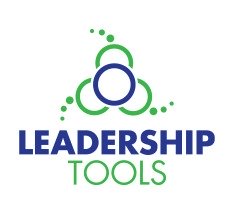Inclusive-Meetings
Use this simple tool to plan more inclusive-meetings.

Donna Rae Scheffert is a facilitator, trainer, and strategic planner. She brings experience from over thirty years working with high performing groups. Contact her for more information on inclusive-meetings.
Donna Rae Scheffert, President, Leadership Tools, a U.S. based consulting firm. She is a retired Leadership Development Specialist from the University of Minnesota Extension. She spent over 20 years creating leadership information, tools and training. She is the owner of online-leadership-tools.com
Inclusive-Meetings Checklist
One of the ways to make sure your meeting participants feel comfortable and contribute their best is to attend to their needs. Take time to focus on inclusive-meetings by using this checklist.
Interaction with Requesting Group
___What is the best way of interaction: do you approach an elder first? Executive?
___Do you begin with personal contact via phone or in person, or do you begin with printed communication?
Resources
___Have you allocated/considered budget line items for the resources it might take to accommodate various participant needs?
___Is an interpreter(s) needed? Is there money to pay for them?
___Have you allowed for the additional time that it might take to interact using multiple methods of communication?
Participants
___Do you know what organizations or agencies your participants are connected with and what services are located locally?
___Do you investigate the communication needs/modes of your potential participants (i.e. hearing impairments, reading levels)?
___What are the ways that participants are being invited? Are invitations being mailed out? Do you check for “reader friendliness”? Do you call, or conduct home visits if they do not have a phone? Have you or could you talk with “representatives” from your target populations to seek out preferred ways for recruitment?
___Have you made transportation arrangements? Child care arrangements?
Site
___Is the place accessible? Have you done a walk-through or verified degree of accessibility (i.e. complicated entry)? Are rooms and restrooms wheelchair accessible and identified with tactile symbols? Are there accessible restrooms on same floor as the meeting?
___Are telephones equipped with Text Telephones (TT) for people who are deaf or have speech difficulties? If not, are there electrical outlets near public phones for individuals to plug in their own TT?
___Is there an area for guide dog relief?
___Is there enough space in the room for people who use wheelchairs?
___Is there an available route for public transportation to the meeting?
___Is there accessible parking?
___Does the meeting facility have alarm systems that alert both visually and audibly?
___Does the site make special accommodations for dietary needs?
___Do you attempt to use resources ( i.e. hotels, conference centers, etc) that demonstrate culturally competent practices (i.e. employing people with disabilities, ethnic differences, etc)
Room Set-up
Do you have:
___Assistive listening devices
___Program materials in alternative formats (Braille, large print, computer disk, audiocassette)
___Reader and/or notetaker
___Ample lighting on speaker’s face
___Preferential seating
___Interpreters (spoken, sign)
___Accessible electrical outlets for audiotape or computer
___Captioned films or videos
Planning for Delivery
___What are ways to deliver activities and to accommodate the heterogeneity of your participants?
___Are there pictorial materials and audio presentations to complement printed materials? Does the printed material need to be in Braille or multiple languages? Interpreters needed?
Are you, as facilitator, prepared to:
___Describe visual aids, including test on boards, flip charts, overheads or slides?
___Speak clearly and face the audience as much as possible?
___Provide alternative formats for printed handouts?
Leadership Tools Consulting Firm

For More Information on Inclusive-Meetings
Facilitation. Training. Strategic Planning.
Donna Rae Scheffert
809 Mayflower Ct.
Northfield, MN 55057
Let me assist you and your organization with inclusive-meetings. Call me at 612.360.4484
